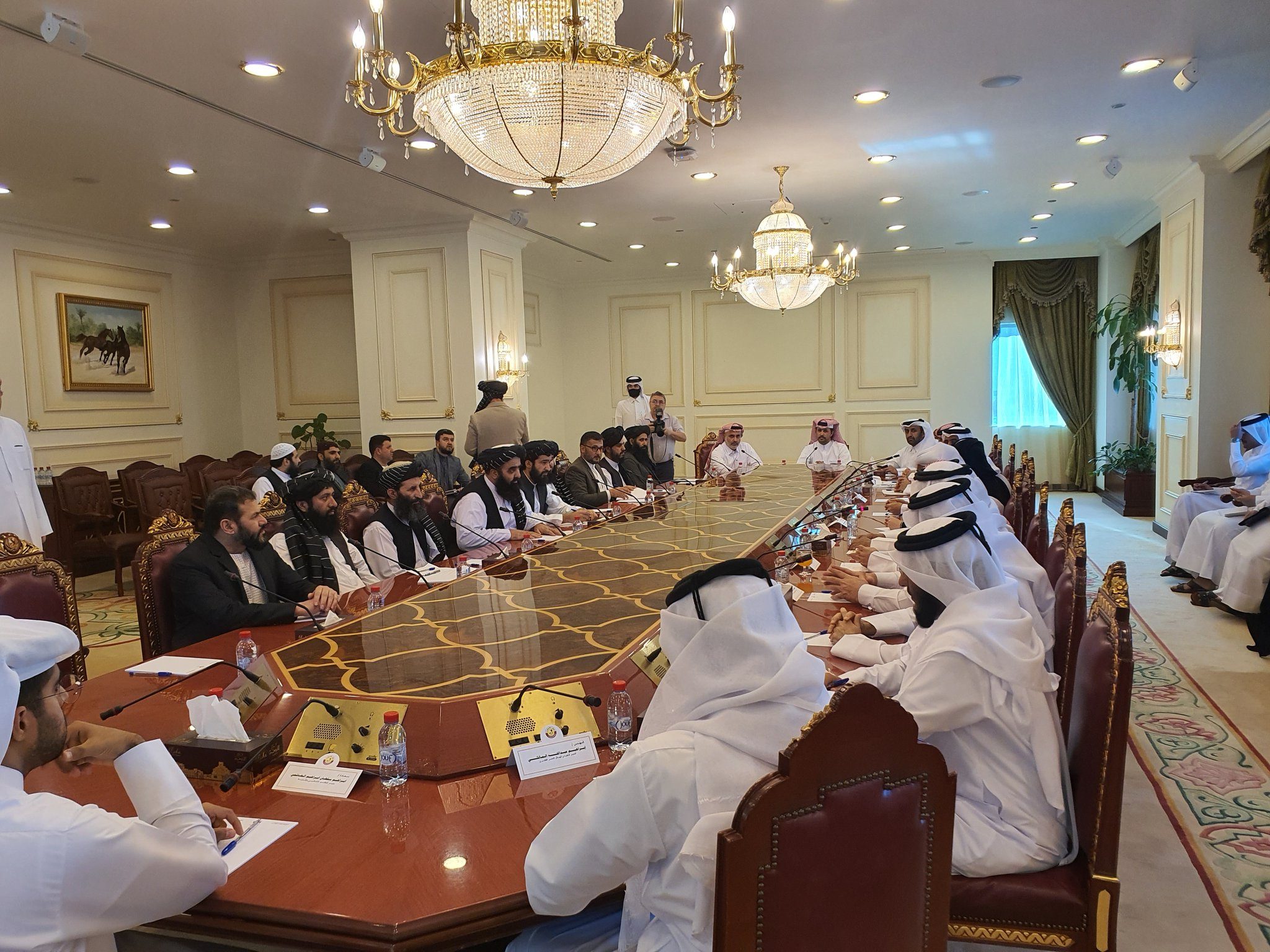The US envoy for Afghanistan is in Qatar for new round of talks that are expected to last for two weeks.
Qatari and Turkish envoys met with the interim Taliban-led Afghan government in Doha over the weekend in talks that saw all sides stress the importance of humanitarian aid and human rights in Afghanistan.
On Saturday, Qatar’s Foreign Minister Sheikh Mohammed bin Abdulrahman Al-Thani met a delegation of Afghanistan’s acting government led by interim Foreign Minister with Amir Khan Muttaqi.
According to the Gulf state’s foreign ministry [MOFA], the parties “reviewed cooperation relations between the two countries and issues related to combating terrorism, promoting human rights, and humanitarian aid”.
Qatar’s foreign minister also emphasised the importance of ensuring all segments of Afghan society, especially girls, receive undisrupted access to education.
This followed another meeting on Friday in which a Qatari delegation led by Special Envoy of the Foreign Minister for Counterterrorism and Mediation of Conflict Resolution Ambassador Dr. Mutlaq Al Qahtani met with the interim Afghan government members.
“The delegations discussed topics related to counterterrorism, enhancing human rights and humanitarian aid. The two sides stressed on the importance of having humanitarian aid reach its beneficiaries, especially with the winter season approaching,” said MOFA.
Despite previously branding them terrorists, UAE now in talks with the Taliban
The Qatari delegation also reiterated its “commitment to continuing work with all Afghan parties and international partners to enhance stability in Afghanistan”.
Meanwhile, Turkey’s Ambassador to Qatar Mustafa Goksu also hosted a dinner at his residence in Doha for the Afghan delegation, Anadolu Agency [AA] reported on Saturday.
Engaging with the west
The Afghan delegation—including representatives from the ministries of education, health, finance, security, and Da Afghanistan Bank—are currently in Doha to hold talks with the US and EU.
The US delegation is led by its envoy to Afghanistan Tom West, who was recently appointed following the resignation of Zalmay Khalilzad in October this year.
According to US State Department Spokesperson Ned Price, the talks will take place for some two weeks and will touch on counterterrorism, the safe passage of US citizens and Afghans, humanitarian assistance, and Afghanistan’s economic situation.
“But again, a key theme was humanitarian assistance and what the United States, together with the international community, might do to alleviate the humanitarian plight that now confronts the people of Afghanistan,” added Price.
The previous round of US-Taliban talks took place in October and were the first since the foreign troop withdrawal on 31 August this year.
During those talks, the Taliban had warned the US not to “destabilise” its regime and discussed “opening a new page” while calling on Washington to release frozen Afghan assets.
“Afghanistan now has everything available for growth and development, and the United States of America can also invest in the manufacturing, agriculture and mining sectors of Afghanistan,” said Muttaqi in the letter.
West responded to the letter by stressing that the US had warned the Taliban that non-humanitarian aid to Afghanistan would be halted if the group seized power militarily.
“US officials made clear to the Taliban for years that if they pursued a military takeover rather than a negotiated settlement with fellow Afghans then critical non-humanitarian aid provided by the international community – in an economy enormously dependent on aid, including for basic services – would all but cease,” said West.
Muttaqi also called for the full implementation of the Doha agreement which he said can pave the way for positive ties between the interim government and Washington.
In February last year, under the former Donald Trump administration, the US and the Taliban signed an agreement in Doha that set 1 May 2021 as the deadline for the complete withdrawal of foreign forces.
The US said it would go ahead with the withdrawal if the Taliban halted its support for terrorist organisations.
However, President Biden changed the deadline to 11 September this year – before it was later revised to 31 August – without conditions.
“Without any doubt, the two-decade war after the 7 October, 2001, cast a shadow over the relations of the American and Afghan people. But fortunately, the end result of this long war was guaranteed and resolved through a bilateral agreement [Doha agreement],” read the letter.
Ten days after the Taliban took over Kabul, the militant group’s spokesman in Qatar Suhail Shaheen told Doha News that the new government is willing to establish “good relations” with the US Joe Biden administration.
“We want to have good relations with all countries. To have cooperation with our neighbours, our regional countries, and other world countries on the basis of mutual respect and mutual interest. This is our policy,” Shaheen told Doha News in August.
“Yes. If they want to have relations with us on the basis of mutual respect and mutual interest, yes. We are ready to have talks with them,” he added.
____________________________________________________________________
Follow Doha News on Twitter, Instagram, Facebook and Youtube







